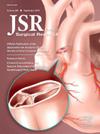手术之外:心理健康在乳房重建结果中的作用。
IF 1.8
3区 医学
Q2 SURGERY
引用次数: 0
摘要
乳腺癌是世界上最常见的癌症之一,在接受治疗后,许多妇女转向整形手术进行重建。诊断出癌症对病人来说是一个沉重的负担。然而,心理/精神合并症对重建后患者满意度的影响仍未得到探讨。因此,本文的目的是研究与没有这些条件的女性相比,先前存在的心理和精神疾病如何影响患者在建造后报告的结果。方法:对PubMed、Web of Science和Cochrane进行系统综述。然后对所有纳入的研究进行定性综合,然后使用随机效应模型进行亚组分析。结果:共纳入24篇论文,涵盖了220,565名年龄在18至84岁之间接受乳房重建的患者。随访时间从1.5个月到61个月不等。在我们对乳房重建结果的研究中,有心理/精神合并症的队列显示,与对照组相比,术后breast - q评分显著下降:24点[95%置信区间(CI;满意度差异[-40,-8],心理社会健康差异20点[95% CI(-57, -17)],身体健康差异18点[95% CI(-28, 9)],性健康差异33点[95% CI(-51, -15)]。结论:最终,我们的分析表明,术前心理状态是术后患者报告结果的关键决定因素。这些结果鼓励术前健康筛查和优化的发展和纳入,作为改善手术结果的手段。本文章由计算机程序翻译,如有差异,请以英文原文为准。
Beyond Surgery: Psychological Well-Being's Role in Breast Reconstruction Outcomes
Introduction
Breast cancer is one of the most prevalent cancers worldwide, and following its treatment, many women turn to plastic surgery for reconstruction. A diagnosis of cancer is a heavy burden on patients. Yet, the effect of psychological/psychiatric comorbidities on patient satisfaction following their reconstruction remains unexplored. Thus, this paper aims to investigate how pre-existing psychological and psychiatric conditions impact patient-reported outcomes postreconstruction, compared to women without such conditions.
Methods
A systematic review of PubMed, Web of Science, and Cochrane was completed. A qualitative synthesis of all included studies was then performed, and a subgroup analysis was then performed using a random effect model.
Results
A total of 24 papers were included, encompassing a total population of 220,565 patients undergoing breast reconstruction between the ages of 18 and 84. The follow-up time ranged between 1.5 mo and 61 mo. In our study of breast reconstruction outcomes, the cohort with psychological/psychiatric comorbidities exhibited significant decreases in postoperative BREAST-Q scores compared to the control group: a 24-point [95% confidence interval (CI; −40, −8)] difference in satisfaction, a 20-point [95% CI (−57, −17)] difference in psychosocial well-being, an 18-point [95% CI (−28, 9)] difference in physical well-being, and a 33-point [95% CI (−51, −15)] difference in sexual well-being.
Conclusions
Ultimately, our analysis suggests that presurgical psychology status is a critical determinant of postsurgical patient-reported outcomes. These results encourage the development and inclusion of well-being screening and optimization prior to surgery as a mean to improve surgical outcomes.
求助全文
通过发布文献求助,成功后即可免费获取论文全文。
去求助
来源期刊
CiteScore
3.90
自引率
4.50%
发文量
627
审稿时长
138 days
期刊介绍:
The Journal of Surgical Research: Clinical and Laboratory Investigation publishes original articles concerned with clinical and laboratory investigations relevant to surgical practice and teaching. The journal emphasizes reports of clinical investigations or fundamental research bearing directly on surgical management that will be of general interest to a broad range of surgeons and surgical researchers. The articles presented need not have been the products of surgeons or of surgical laboratories.
The Journal of Surgical Research also features review articles and special articles relating to educational, research, or social issues of interest to the academic surgical community.

 求助内容:
求助内容: 应助结果提醒方式:
应助结果提醒方式:


